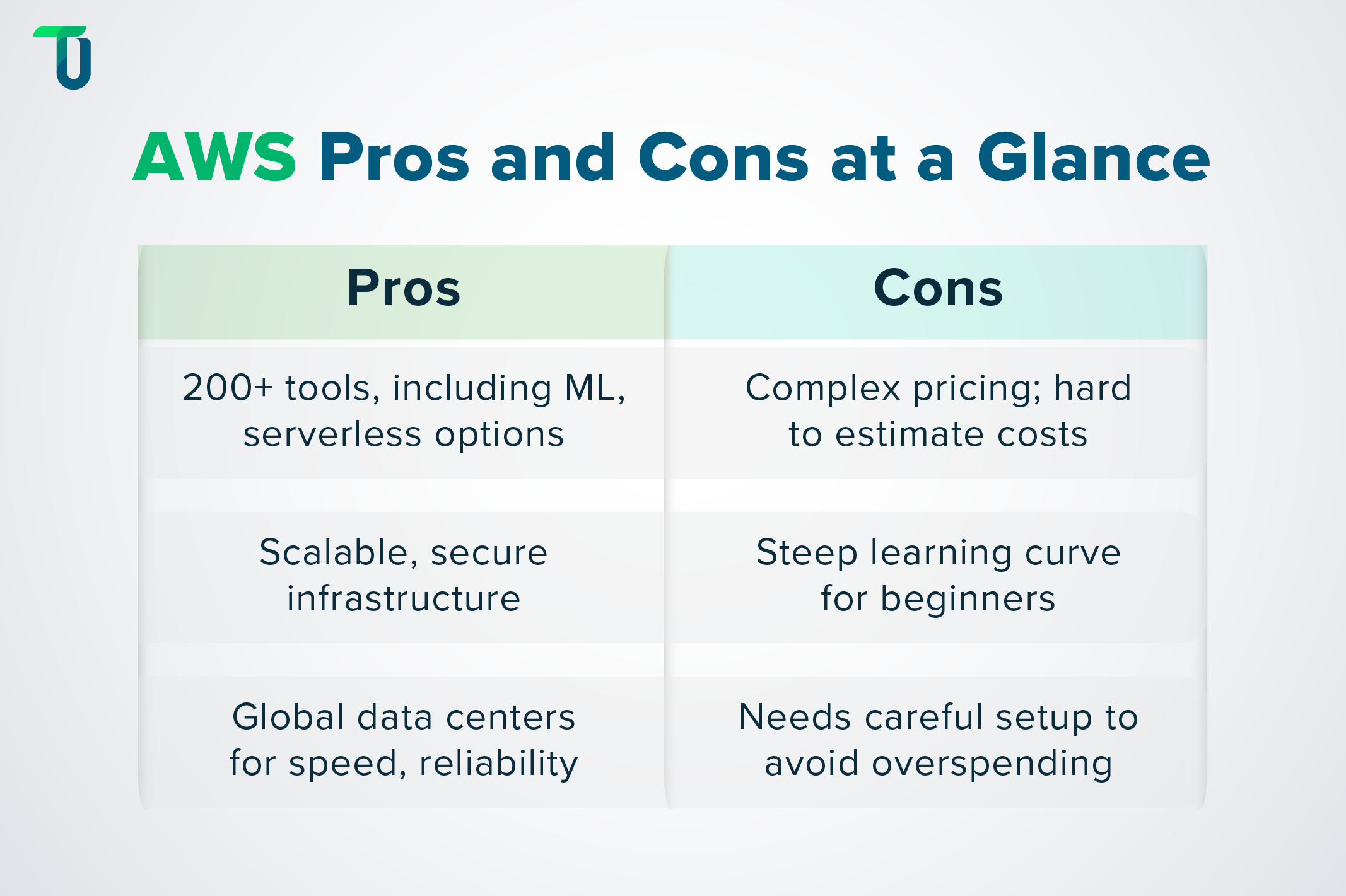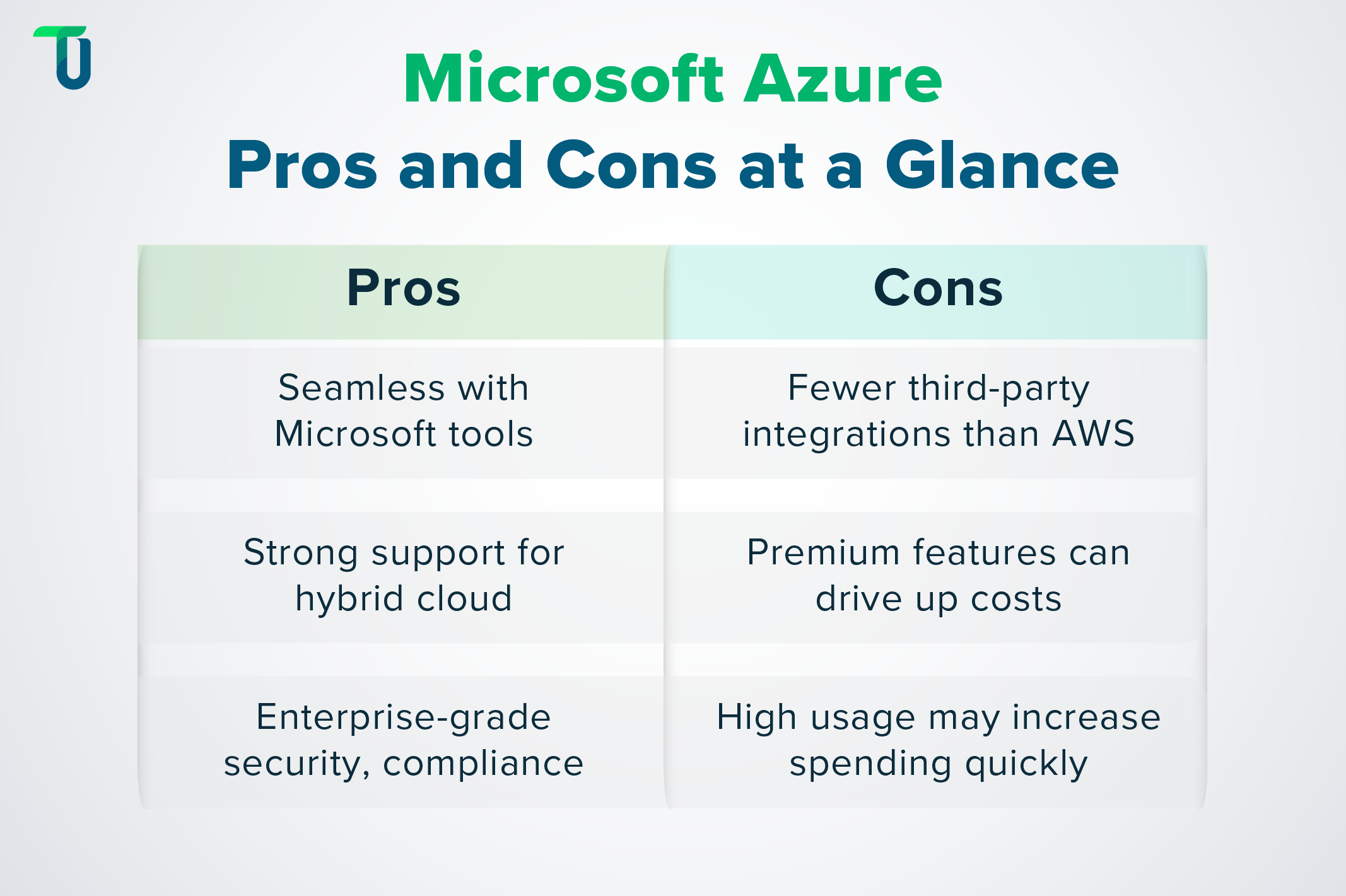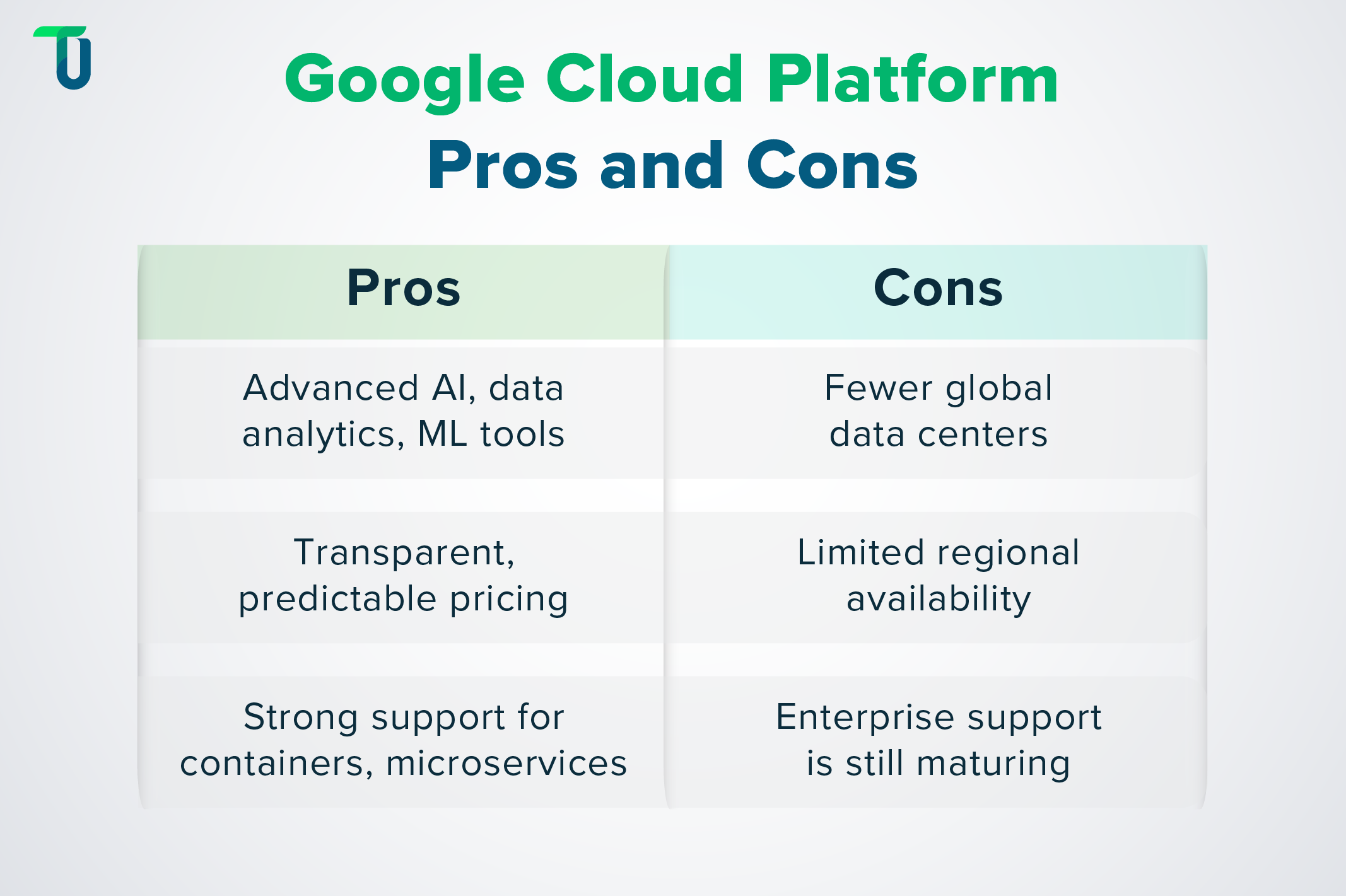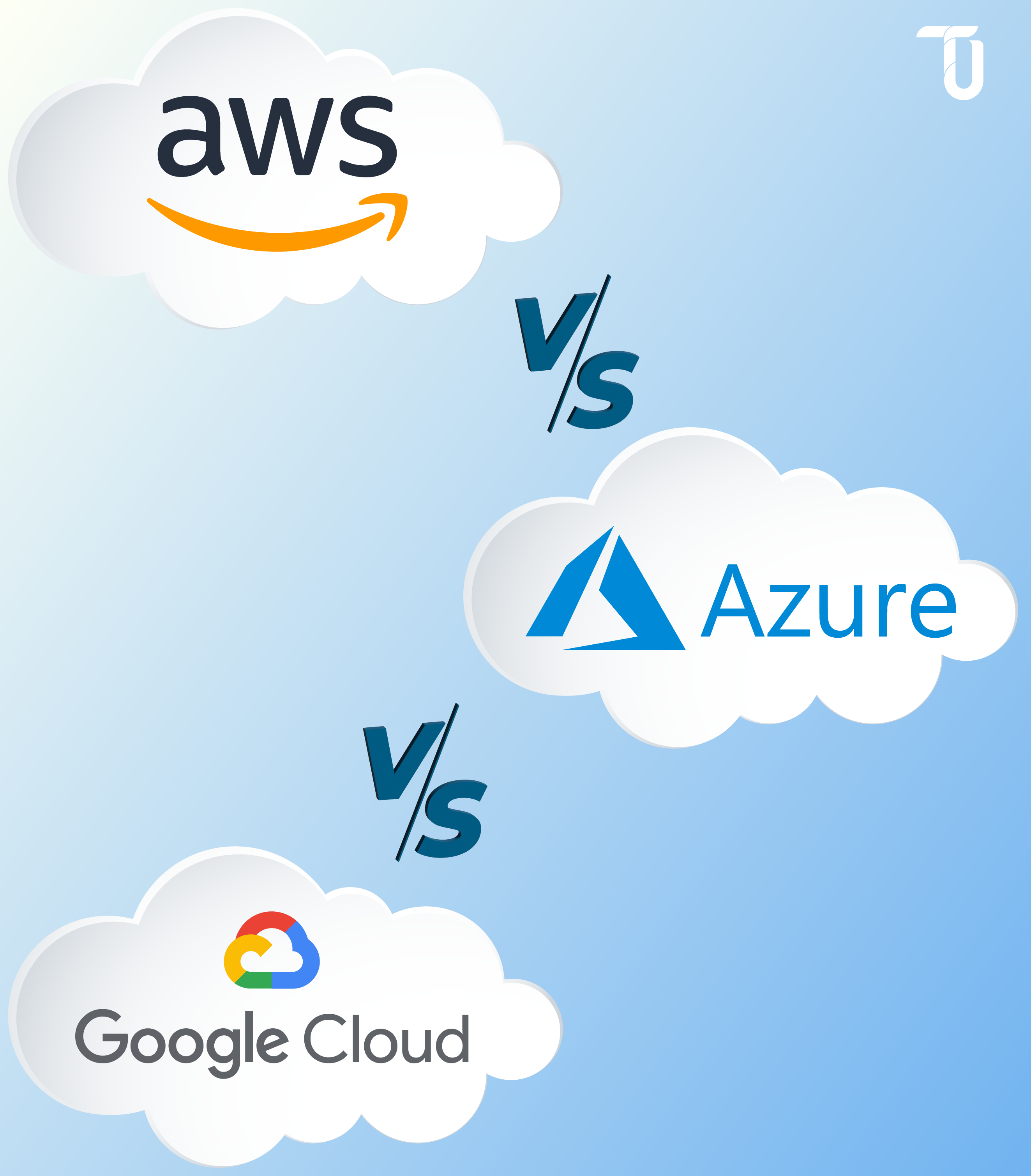What Is Cloud App Development?
Cloud app development means building apps that run on the internet instead of on a specific computer or server. These apps live in the "cloud," so people can use them anytime, from anywhere—just like using Gmail or Netflix.
Moreover, with cloud-based app development, businesses don’t have to worry about buying big servers or doing manual updates. Apps can grow or shrink based on demand, making them super flexible. In fact, Gartner predicts that by 2025, more than 95% of new digital workloads will run on cloud-native platforms.
To sum up, cloud app development gives businesses the tools to build smarter, faster, and more flexible applications without the hassle of managing hardware.
Pro Tip: If you are starting with a small app but want to grow quickly, I suggest going with cloud-native development. It makes sure your app can easily handle more users and features as your business grows.
What Is Amazon Web Services (AWS)?
Amazon Web Services (AWS) is a powerful cloud app development platform created by Amazon in 2006. It helps businesses build, store, and manage apps using the internet—without needing to own physical servers. AWS offers over 200 tools and services– from databases and storage to machine learning and AI. It's trusted by companies of all sizes for reliable, secure, and scalable cloud-based app development.
AWS Pros:
- Offers 200+ tools, including powerful machine learning and serverless computing services.
- Provides highly scalable infrastructure with strong security and real-time monitoring features.
- Operates the world’s largest network of data centers for faster global performance and backups.
AWS Cons:
- Pricing structure is complex; can be confusing without careful monitoring and planning.
- Offers too many services, which makes it hard for beginners to pick and use the right tools.

Quick Tip: AWS pricing can be a bit confusing, so we recommend using the AWS Pricing Calculator. It helps you estimate your costs and plan your spending more easily.
What Is Microsoft Azure?
Microsoft Azure is a flexible cloud app development platform launched in 2010. It helps businesses build, manage, and deploy apps using Microsoft’s global network of data centers. Azure is especially useful for companies already using Microsoft tools like Office 365, Windows Server, or SQL Server. With support for AI, DevOps, and hybrid environments, it offers a powerful option for secure and scalable cloud-based app development.
Microsoft Azure Pros:
- Works smoothly with Microsoft tools like Active Directory, SharePoint, and Visual Studio.
- Supports hybrid cloud setups with strong on-premise and cross-environment connectivity.
- Meets strict compliance, encryption, and enterprise-grade security requirements.
Microsoft Azure Cons:
- Fewer third-party integrations than AWS, which limits flexibility in some environments.
- Costs rise quickly with high usage, additional services, and premium enterprise features.

Related Read: How Cloud Native Applications Are Changing Software Delivery
What Is Google Cloud Platform (GCP)?
Google Cloud Platform is a smart choice for cloud app development, especially if you are working with data, analytics, or machine learning. Introduced by Google in 2008, GCP runs services like YouTube and Gmail, proving it can handle massive workloads. It’s known for its innovation in AI, support for developers, and contribution to open-source tools like Kubernetes.
Google Cloud Pros:
- Offers advanced tools for AI, data analytics, and real-time machine learning workflows.
- Transparent, easy-to-understand pricing makes it more predictable for businesses to manage costs.
- Excellent container and microservices support with native Kubernetes and Anthos integration.
Google Cloud Cons:
- Fewer global data centers, leading to limited availability in some geographic regions.
- Enterprise support is still maturing compared to the offerings of AWS and Microsoft Azure.

Related Read: Learn how Cloud, AI, and Automation are the future of business agility.
Not sure which cloud provider to go with?
Talk to our cloud experts and get personalized guidance for your app development. Schedule a free consultation today!
AWS Vs. Azure Vs. GCP: 5 Key Differences
AWS, Azure, and GCP each offer powerful tools for cloud app development, but they differ in how they handle performance, pricing, developer support, and more. Let’s explore their key differences to better understand each platform and ultimately choose the one that fits best.
AWS Vs. Azure Vs. GCP: Core Cloud Services
When it comes to cloud app development, the basics matter—like computing power, file storage, and databases. Here's how AWS, Azure, and Google Cloud compare on these core services.
AWS: AWS gives you EC2 to run your apps, S3 to store your files, and RDS to handle your databases. It’s been around the longest, offering reliable and scalable tools. If you want a trusted, all-round option for cloud-based app development, AWS is a great choice for any business size.
Azure: Azure has Virtual Machines for running tasks, Blob Storage for saving files, and Azure SQL Database for managing data. It’s the go-to option for companies already using Microsoft tools like Office 365 or Windows Server. Shifting to the cloud is smooth with Azure.
Google Cloud: Google Cloud offers Compute Engine for virtual machines, Cloud Storage for secure file saving, and Cloud SQL for databases. It’s known for speed, smart features, and works well for startups or teams focused on innovation and data.
TenUp’s Viewpoint: AWS offers the most all-around services, Azure is best for teams using Microsoft tools, and Google Cloud is perfect for fast, innovative cloud-based app development.
AWS Vs. Azure Vs. GCP: Advanced Platform Features
The next big difference in cloud app development lies in advanced tools like AI, analytics, DevOps, and IoT. Each platform offers unique strengths that go beyond basic cloud-based services.
AWS: AWS is feature-packed for advanced cloud-based app development. It offers Lambda for running code without servers, SageMaker for building AI models, and IoT Core for connecting smart devices. It’s powerful, but the range of tools might feel overwhelming.
Azure: Azure is a solid choice for enterprises using Microsoft. It includes Azure DevOps for building and testing apps, Azure Arc for managing both cloud and local systems, and smart AI tools like Cognitive Services. It’s built to support companies moving to the cloud at their own pace.
Google Cloud: Google Cloud is built for speed and innovation. It offers BigQuery for lightning-fast data analysis, TensorFlow for machine learning, and AutoML for easy AI. If your focus is on insights, automation, or smart apps, it’s one of the best options for cloud app development today.
TenUp’s Viewpoint: Pick Google Cloud if your project focuses on AI or data. Choose Azure if you are working in a Microsoft-heavy setup, and opt for AWS if you are aiming for maximum power, features, and flexibility.
Also Read: Serverless Architecture: Benefits, Components & Future Trend
AWS Vs. Azure Vs. GCP: Developer Tools & Support
The third major difference between AWS, Azure, and Google Cloud is the kind of tools and support they offer to developers. Let’s take a closer look at how each platform empowers developers.
AWS: AWS gives developers powerful tools like CodePipeline to automate workflows and CloudFormation to manage infrastructure through code. With wide language support, strong documentation, and a huge developer community, AWS is great for teams looking for flexible solutions.
Azure: Azure is perfect for teams using Microsoft tech. It works smoothly with Visual Studio, GitHub Actions, and Azure DevOps, making coding, testing, and deploying faster and easier. If your cloud app development is built on .NET or Windows, Azure is the right pick.
Google Cloud: Google Cloud is designed for speed and simplicity. It offers Firebase for mobile/web apps, Cloud Build for continuous integration, and well-documented APIs. For startups and teams working on modern cloud-based app development, GCP is an ideal choice.
TenUp’s Viewpoint: Go with Azure if you are in a Microsoft ecosystem, choose AWS if you need reliable, flexible tools and strong enterprise support, and Pick Google Cloud if you are a startup or mobile-first team that wants fast, modern, cloud app development.
AWS Vs. Azure Vs. GCP: Global Reach & Reliability
The next major difference between AWS, Azure and Google Cloud is global reach and reliability. All of them have different levels of reach and infrastructure as explained below:
AWS: AWS has a massive global presence, with data centers in 30+ regions and over 100 availability zones. This setup means high reliability, fast performance, and strong failover support. For businesses building cloud-based apps with users around the world, AWS is an ideal pick.
Azure: Azure covers more global regions than AWS, making it a smart choice for companies needing data compliance across borders. It’s great for businesses with customers in multiple countries. If your cloud app development depends on meeting strict local data rules, Azure is the right choice.
Google Cloud: Google Cloud has a smaller, but steadily growing, global footprint compared to AWS and Azure. For teams that don’t need massive global coverage right away, GCP supports steady growth in cloud-based app development.
TenUp’s Viewpoint: AWS is best for reliable performance, Azure works well for businesses needing worldwide coverage and local rules, and Google Cloud is great for smaller teams that want speed and room to grow.
AWS Vs. Azure Vs. GCP: Pricing Models & Cost Control
The fifth and final major difference between AWS, Azure, and Google Cloud is pricing. While all three platforms use pay-as-you-go models, their pricing, discounts, and cost control tools differ.
AWS: AWS gives you flexible pricing with options like on-demand, reserved, and spot instances. It also has a pricing calculator to help estimate costs. But with so many services, it can get tricky to track spending.
Azure: Azure makes saving easier for companies already using Microsoft tools. It offers discounts for long-term plans and Microsoft license holders. If you are building enterprise-level cloud applications, Azure is an ideal platform that will help keep your budget in check.
Google Cloud: Google Cloud keeps pricing simple and startup-friendly. With per-second billing and automatic discounts for continued use, it’s a great option for fast-moving teams or startups who want modern, cloud-based app development without budget headaches.
TenUp’s Viewpoint: Go with GCP for clear, startup-friendly pricing, choose Azure for savings if you use Microsoft tools, and pick AWS if you need flexible options and don’t mind a more complex pricing setup.
| Category | AWS | Azure | Google Cloud |
|---|---|---|---|
| Core Services | EC2 (apps), S3 (file storage), RDS (databases). Reliable and scalable. | Virtual Machines, Blob Storage, Azure SQL. Great for Microsoft users. | Compute Engine, Cloud Storage, Cloud SQL. Fast and startup-friendly. |
| Advanced Features | Lambda (serverless), SageMaker (AI), IoT Core. Powerful but complex. | Azure DevOps, Azure Arc, Cognitive Services. Built for enterprises. | BigQuery (analytics), TensorFlow (ML), AutoML. Fast and innovative. |
| Developer Tools & Support | CodePipeline, CloudFormation, strong SDKs. Great for flexible dev teams. | Visual Studio, GitHub Actions, Azure DevOps. Best for .NET/Windows devs. | Firebase, Cloud Build, APIs. Ideal for mobile/web-first teams. |
| Global Reach & Reliability | Largest reach with 30+ regions, strong failover. | Covers most regions, strong on compliance. | Smaller reach, growing steadily. Good for focused growth. |
| Pricing & Cost Control | Flexible but complex pricing. Needs careful tracking. | Discounts for Microsoft users and long-term plans. | Simple pricing, per-second billing, great for startups. |
AWS Vs. Azure Vs. GCP: Which Cloud Platform Is Best for You?
Choosing between AWS, Azure, and Google Cloud for cloud app development largely depends on your business needs—such as scalability, integration with existing tools, pricing flexibility, and more. Nevertheless, based on our analysis, you should choose:
- AWS if you need a powerful, flexible cloud platform with global reach and a wide range of services.
- Azure if your business runs on Microsoft tools and you want seamless integration and cost benefits.
- Google Cloud if you are a startup or agile team looking for simplicity, smart features, and transparent pricing.
Above all, evaluate your long-term goals, technical requirements, and team capabilities before making a final choice—because the best platform is the one that fits your business perfectly.
The Bottom Line:
Choosing the right cloud platform—AWS, Azure, or GCP—is critical, as it directly impacts your cloud app development process and, ultimately, your business as a whole. But with the insights and tips shared in this blog, you are now better equipped to make an informed decision. However, if you are still looking for assistance with cloud app development, we are right here!
At TenUp Software Services, we offer a full range of cloud solutions designed to transform your business into an agile enterprise. Our cloud solutions are customized to your unique needs and are implemented with precision, scalability, and future-readiness in mind.
Need help building reliable cloud apps?
Get in touch with our experts to discuss your project goals and discover how we can help you build smarter, faster, and more efficient cloud applications.
Frequently asked questions
Which cloud provider offers the best free tier for beginners?
Google Cloud Platform (GCP) offers the most beginner-friendly free tier with always-free products and a $300 credit, while AWS and Azure provide broader service access but with more usage limits.
Which platform is more suitable for hosting high-traffic websites?
AWS is ideal for high-traffic sites due to its global infrastructure and auto-scaling, but Azure and GCP are also strong contenders, depending on tech stack and region.
How do the security features of AWS, Azure, and GCP differ?
All three offer enterprise-grade security; AWS leads in maturity, Azure excels in compliance, and GCP stands out with advanced encryption and zero-trust architecture.
What are the differences in customer support services among AWS, Azure, and GCP?
AWS and Azure offer robust support tiers and mature SLAs, catering to diverse enterprise requirements. Google Cloud’s support is known for its transparent approach and ease of use, though its enterprise-level support has been catching up quickly in recent years.
Which cloud provider is more cost-effective for startups and small businesses?
GCP is often the most budget-friendly, with simplified pricing and auto-discounts, followed by Azure (especially for Microsoft users), then AWS.
How do AWS, Azure, and GCP perform in terms of global data center availability?
AWS has the largest global reach, Azure covers the most regions, and GCP is expanding steadily but has a more limited footprint.
Which platform offers better tools and support for DevOps practices?
Azure is tightly integrated with DevOps tools like GitHub and Azure DevOps, AWS offers mature CI/CD services, and GCP emphasizes speed and simplicity.
How do the AI and machine learning services of AWS, Azure, and GCP compare?
GCP leads with advanced ML tools like Vertex AI and TensorFlow, AWS offers breadth (SageMaker, Rekognition), and Azure integrates well with Microsoft AI services.
What are the key differences in networking capabilities among AWS, Azure, and GCP?
AWS offers the most comprehensive networking stack, Azure supports hybrid setups well, and GCP shines in global low-latency networking with its private fiber network.

